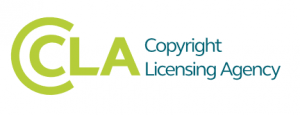Who’s afraid of copyright? Five key points for UCL staff and students to help you start the new term with confidence
By Christina Daouti, on 30 August 2022
With the new academic year upon us, what better time to post a refresher on copyright practices?
Whether you are preparing your lectures, carrying on with your research projects, attending new modules or writing your dissertation, here is a reminder of what you can do when using resources in your teaching, learning and research…while staying within copyright law.
- You can rely on licences and services the University subscribes to.
 The CLA Higher Education licence allows UCL staff to scan or photocopy extracts from a large number of books and journals. The service is managed by the library: teaching staff putting together reading lists should visit the Course Readings webpage. Please see our earlier post on how the CLA works.
The CLA Higher Education licence allows UCL staff to scan or photocopy extracts from a large number of books and journals. The service is managed by the library: teaching staff putting together reading lists should visit the Course Readings webpage. Please see our earlier post on how the CLA works.
Similar licences are in place for newspapers (NLA Media Access licence) and recordings (Educational Recording Agency – ERA licence/Box of Broadcasts – BoB service).
2. Electronic journals and e-books. You don’t always need to digitise or copy. You can access (and provide links for your students) to the vast amount of electronic resources, including journal articles and e-books, e-books and digital journal articles the University subscribes to.
3. Open Access resources. You can access any Open Access journal articles, book chapters, monographs and other resources, including those held in UCL’s very own Open Access repository or published by UCL Press. If a resource is licensed under an open licence such a Creative Commons licence you don’t have to worry about limits to how much you can copy.
 You may also be able to adapt the resource and share with others, depending on the terms of the licence. Visit the openverse resource, a database of over 600 million image and audio materials that are openly licensed or in the public domain: you can reuse these without permission in your research, studies and teaching. Please be sure to comply with any licence terms.
You may also be able to adapt the resource and share with others, depending on the terms of the licence. Visit the openverse resource, a database of over 600 million image and audio materials that are openly licensed or in the public domain: you can reuse these without permission in your research, studies and teaching. Please be sure to comply with any licence terms.
- Fair dealing. For materials that are not licensed for reuse, you can consider relying on ‘fair dealing’. Essentially this means that UK copyright law allows you to use limited amounts of published materials for specific purposes, including research and educational purposes (e.g., quotation, criticism and review, illustration for instruction, examination). Use of the materials should be reasonable and appropriate to your purpose, in ways that do not damage the commercial interests of the creators/rights owners; and you should always fully acknowledge the authors and the source.
Fair dealing is a matter of interpretation and therefore you may want to seek advice if unsure. This brings us to our final point.
- You can contact the library’s copyright team for further information and advice or to discuss a training session. We offer introductory sessions on copyright, as well as more specialised sessions related to your theses, research and teaching. We will be sharing this term’s programme very soon. In the meantime, please feel free to contact us at copyright@ucl.ac.uk. We look forward to hearing from you.
 Close
Close



